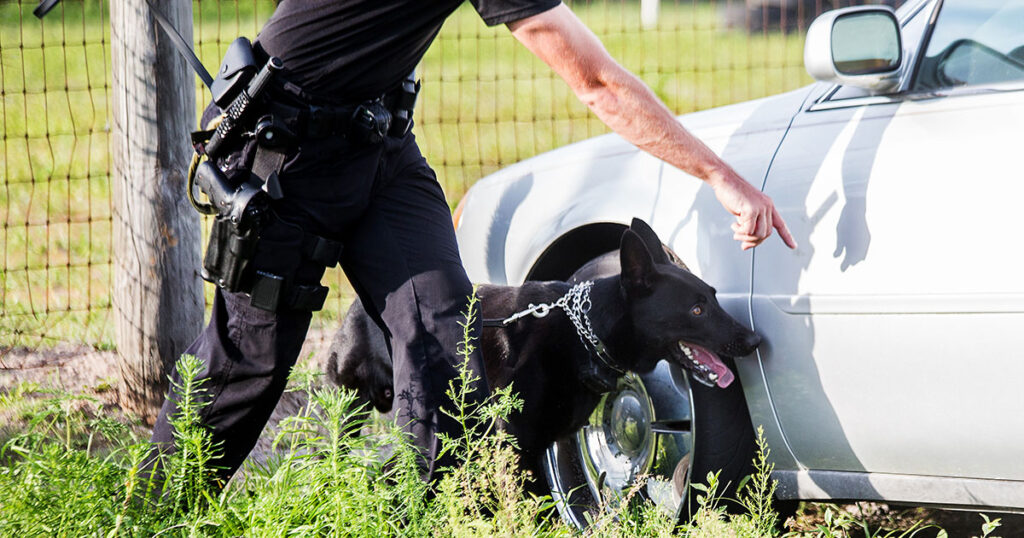What to Know About California’s Drug Recognition Experts
A Drug Recognition Expert (DRE) is an officer specially trained in drug impairment detection. DREs are used throughout at law enforcement agencies in throughout California and nationwide. They generally undergo a certification process. However, the reliability of the 12-step evaluation usedthey use to determine whether a driver is impaired by drugs has come into question.
At Ridley Defense, we understand the deep impact that a drug-related charge or DUI can have on a person and their family. We are dedicated to helping our clients get their lives back on track after an arrest. Founder Douglas Ridley is a former prosecutor with extensive experience in courthouses throughout Southern California. If you have been arrested for a drug charge, contact our office at (805) 208-1866 to schedule a complimentary consultation.
What Is a DRE?
A DRE is a “Drug Recognition Expert.” To become a DRE, an officer must receive special training in identifying drug-impaired drivers. According to the California Highway Patrol, California’s DRE program was founded in the early 1970s by the Los Angeles Police Department (LAPD). The program grew and eventually led to a collaboration with the National Highway Traffic Safety Administration (NHTSA) to create a “standardized curriculum for DRE training.”
The DRE course is considered the most advanced class in a series of training that includes Standardized Field Sobriety Tests (SFST) and Advanced Roadside Impaired Driving Enforcement (ARIDE). The DRE course is 72 hours long and includes instructions on eye examinations, drug classifications, and the physiology of drugs. Officers must have completed the SFST and ARIDE courses to qualify for DRE training.
How Does a DRE Officer Determine Impairment?
DRE officers use a 12-step process to determine whether someone was driving under the influence of drugs. Since the DRE evaluation is standardized, all officers receive the same training in the process.
The 12-Step DRE process is as follows:
- Breath Alcohol Test - A breath alcohol test is used to determine whether the person is under the influence of alcohol. An officer may ask for a DRE officer to evaluate the suspect if a breath alcohol test does not show impairment by alcohol.
- Arresting Officer Interview - A DRE officer interviews the arresting officer to determine why the suspect was pulled over and if there were signs of impairment.
- Preliminary Examination - A DRE officer conducts an initial examination, including taking the suspect’s pulse.
- Eye Examination - The officer conducts an eye examination to look for signs of Horizontal Gaze Nystagmus (HGN), Vertical Gaze Nystagmus (VGN), or a lack of convergence.
- Field Sobriety Tests - The officer runs through a series of Field Sobriety Tests.
- Vital Signs and Pulse - The officer takes a suspect's vital signs and pulse.
- Dark Room Examinations - A DRE officer will examine the person’s pupils under multiple lighting conditions with a pupilometer to see if they are dilated, constricted, or normal.
- Muscle Tone Examination - An officer examines the person’s muscle tone to see if they are rigid or loose.
- Injection Site Check and Pulse - The officer examines the person for injection sites and retakes the pulse for a final time.
- Suspect Statement Evaluation and Other Observations - At this step, an officer may read the suspect their Miranda Rights and ask them a series of questions regarding their drug use.
- Analysis and Opinion - The DRE officer uses their analysis of the examinations to determine whether the person is impaired by drugs.
- Toxicological Examination - A chemical test such as a blood or urine test is conducted to determine the type of drugs that caused the suspected impairment.
While DRE officers receive training in these areas, it is important to remember that the officers are not medical professionals. They are, however, asked to arrive at a medical or scientific conclusion.
Are DRE Conclusions Reliable?
The conclusion may not be reliable as it is based on the officer’s opinion. A defense attorney may be able to argue inconsistencies in the officer’s examinations or that something like an underlying medical condition was the reason for some of the examination results.
Contact an Attorney Today
If you were arrested for driving under the influence of drugs, contact our office at (805) 208-1866 to schedule a complimentary consultation. An attorney can review your case and help determine all of your legal options. Call now to get started.


